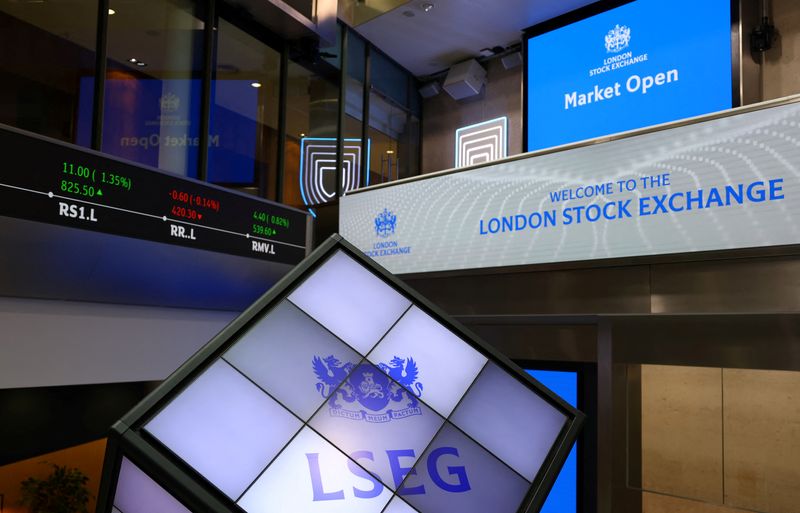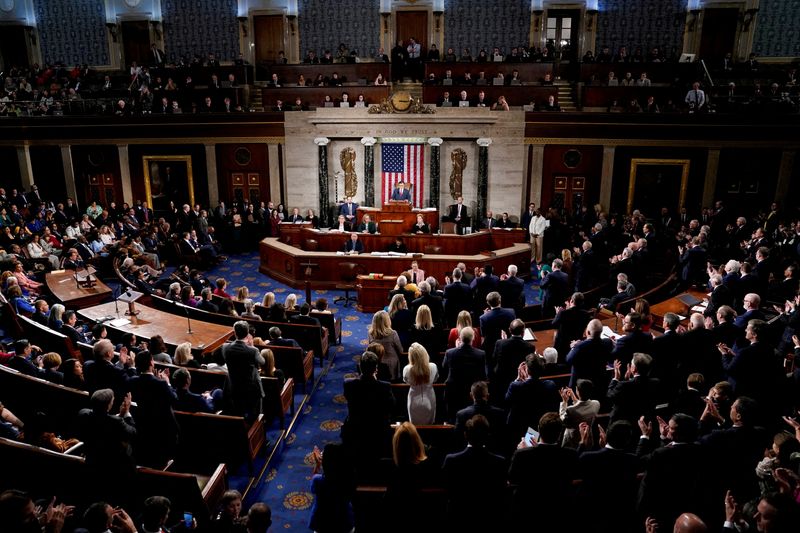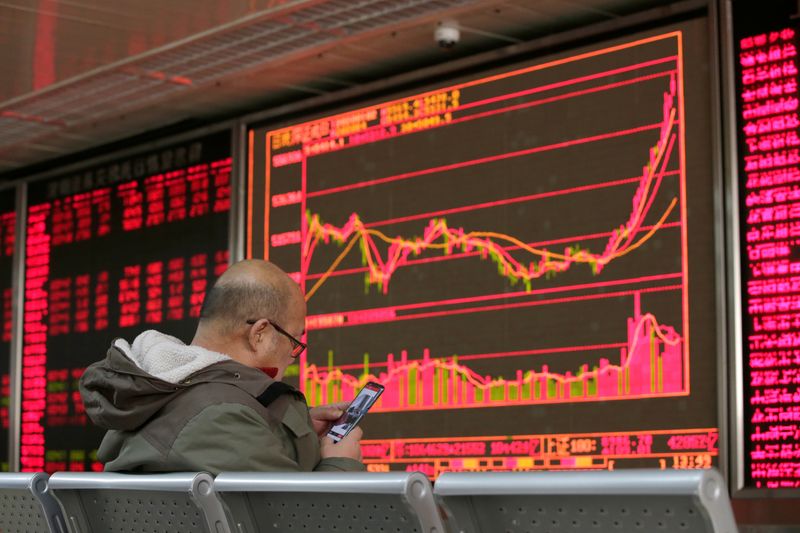By Khushi Singh and Purvi Agarwal
(Reuters) -London’s FTSE 100 ended lower on Tuesday, led by a sell-off in healthcare and energy shares, while cooling wage growth in the UK cemented bets for further interest rate cuts by the Bank of England.
The blue-chip FTSE 100 fell 0.8%, after logging its best day in over a month on Monday. The mid-cap FTSE 250 ended the session flat.
The pharma and biotech sector slipped 1.5% to hit its lowest level in more than a month, weighed down by AstraZeneca (NASDAQ:AZN), which shed 2.4%.
Detailed results from one of the drugmaker’s key lung cancer trials on Monday showed that its experimental precision drug did not significantly improve overall results in patients.
Heavyweight energy shares lost 1.7% after Brent crude futures prices fell below $70 a barrel for the first time since December 2021, after OPEC+ revised down its demand forecast for this year and 2025. [O/R]
The automobiles and parts index was the top sectoral decliner, down 2.9%, followed by a 1.9% drop in the banks index.
Precious metal miners led gains with a 6.7% rise, marking its best day since Nov. 4, 2022, after shares in gold miner Centamin surged 22.9%.
AngloGold Ashanti will buy the Egypt-focused smaller rival in a $2.5 billion stock and cash deal.
Rate-sensitive real estate and homebuilder indexes were also among the top gainers after data showed British pay growth cooled in the three months to July to a more than two-year low and employment shot higher.
Economists suggest the data keeps the BoE on track for a November rate cut.

Among individual stocks, Alpha Group fell 11.1% to the bottom of the mid-caps index after the financial solutions provider announced chief executive succession plans. Clive Kahn will succeed founder Morgan Tillbrook as CEO from January 2025.
IQE tumbled 19.2% after the semiconductor wafer maker said it saw its annual performance at the lower end of analysts’ expectations.










